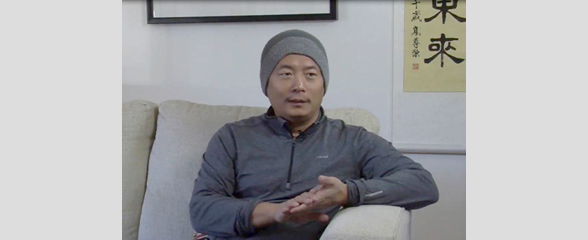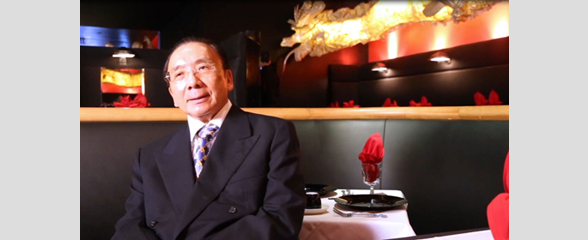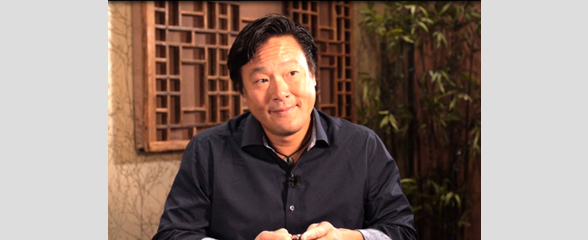China

2008.040.022 Oral History Interview with Spring Wang September 8, 2008
Spring Wang is an independent developer who was born in China and raised in Taiwan. In this oral history, she discusses her experience of moving to the United States in 1968, where she attended college and became a Marxist heavily involved in political and social movements. One organization with which she associates herself is Asian Americans for Equality (AAFE), a group devoted to talking about social services, equal employment opportunities, and housing development. She reflects on her experience in New York’s Chinatown, paying particular attention to the infrastructure and ongoing development that trickles into Soho, the Lower East Side, and Tribeca.
Events like September 11th and the global economic crisis come into play when Wang analyzes the demographic shifts in the community. According to Wang, new Chinese immigrants are more self-confident and forward-looking in contrast to earlier immigrants. She believes that because Chinatown is a small area, the institutions or physical aspect of the neighborhood is more essential than the residential population to the survival of Chinatown. She proposes that Chinatown builds larger institutions, advocating for the creation of places with more cultural spirit and symbolic significance to act as a “magnet†for the people.

2016.037.009 Oral History Interview with Susana Foo 2015/07/09
Susanna Foo talks to MOCA about moving from place to place during her childhood in China as well as during her adulthood in the United States. She discusses attending school and working as a librarian before developing an interest in cooking which led her to become a chef. She shares her experiences at her familys struggling restaurant and how her studies at the Culinary Institute of America helped her turn it around and ultimately led to her opening another restaurant and even writing her own cookbooks. She concludes by sharing her thoughts on the importance of Chinese food to Chinese culture and the diverse influences that have formed her own eclectic cooking style.

2016.037.010 Oral History Interview with Jeff Gao, 2015/11/14
Jeff Gao was born in 1976 in Shandong, China. He grew up during the end of the Cultural Revolution, thus he did not have an abundant amount of food to eat or experience. From a young age, he talks of his fondness of hand-pulled noodles and his determination to learn how to make the noodles from a chef he knew. Later, he went on to study in Beijing and eventually travel the world to learn about food internationally. His first restaurant Little Yunnan in Beijing was a huge success and the restaurant brought him success and fame in the food industry and was named one of the best restaurants in China. After the success of his initial restaurant, Gao eventually opened another restaurant in Boulder, Colorado in the United States. In his interview, Gao recounts his experience with food as he emphasizes the importance of high quality ingredients, cooking techniques, and cooking with serious passion.

2016.037.022 Oral History Interview with Michael Tong 2016/03/11
Michael Tong describes his path from his birth of Anhui to becoming one of the most successful restaurateurs in New York City with two four-star restaurants. Moving first to Shanghai and Hong Kong before settling in the US, Mr. Tong studied civil engineering but chose to work in a NYC restaurant after graduation. From there, he opened up two restaurants, Shun Lee Palace and Shun Lee West, where he developed his love for different Chinese cuisines and helped bring Sichuan and Hunanese food to New York and the US. Tune in to hear his thoughts on what makes certain Chinese food authentic and his view of how Chinese food and American tastes have changed since the 1970s.

2016.037.023 Oral History Interview with Ming Tsai 2015/10/19
Ming Tsai talks with MOCA about his lifelong relationship with food and how he came to be one of the most successful East-West fusion chefs. Listen in as Ming explains the role that food and cooking played in his early life growing up around his grandparents in a Chinese-American household and visiting Taiwan. Despite going to Yale for a degree in engineering, he ultimately decided to become a chef, and after working in several famous French kitchens and culinary schools, he pursued a hospitality degree at Cornell which launched him into hotel management. He eventually followed his dream of becoming a chef-owner at his own restaurant, Blue Ginger. Throughout the discussion, Ming weaves in beautiful anecdotes about food and his philosophy of how to blend cuisines successfully. He concludes his discussion with his thoughts on the importance of charity in his life and his experience using food for diplomacy.

2016.037.031 Oral History Interview with Chris Yeo
Chris Yeo sits down with MOCA to talk about his experience leaving Singapore and coming to the US where he opened a series of successful restaurants. He explains his journey from opening a salon to becoming a restaurateur and several of the things that hes learned about cooking for American patrons. He discusses his family and how his cooking stems from a desire to please people. Chris also shares some anecdotes about his experience on Food Network and speaking at the Smithsonian institute.